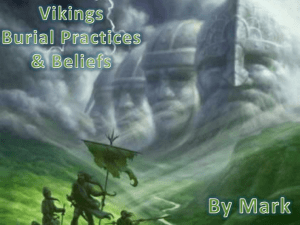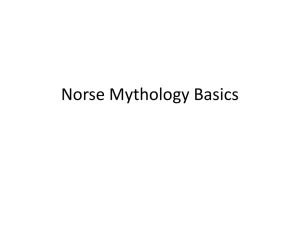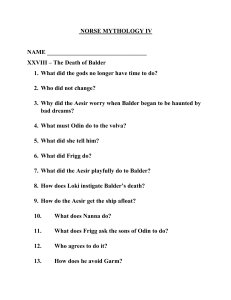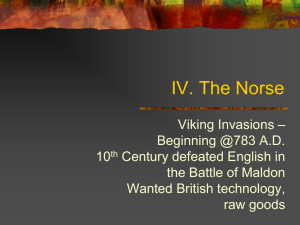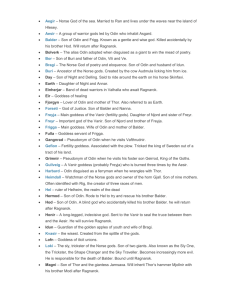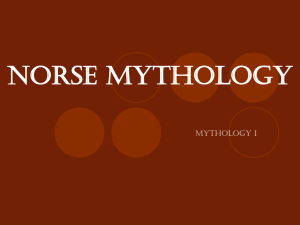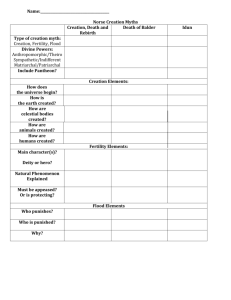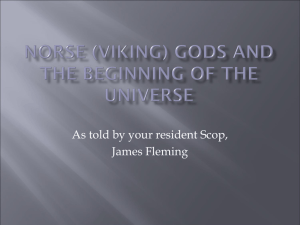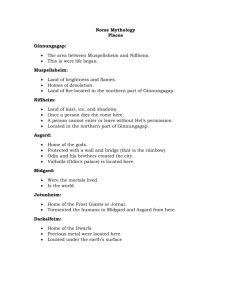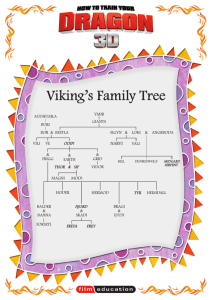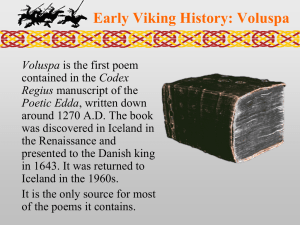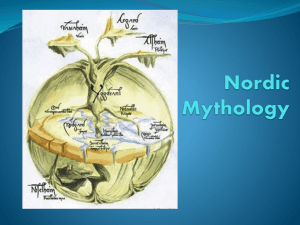Norse Gods Thor
advertisement
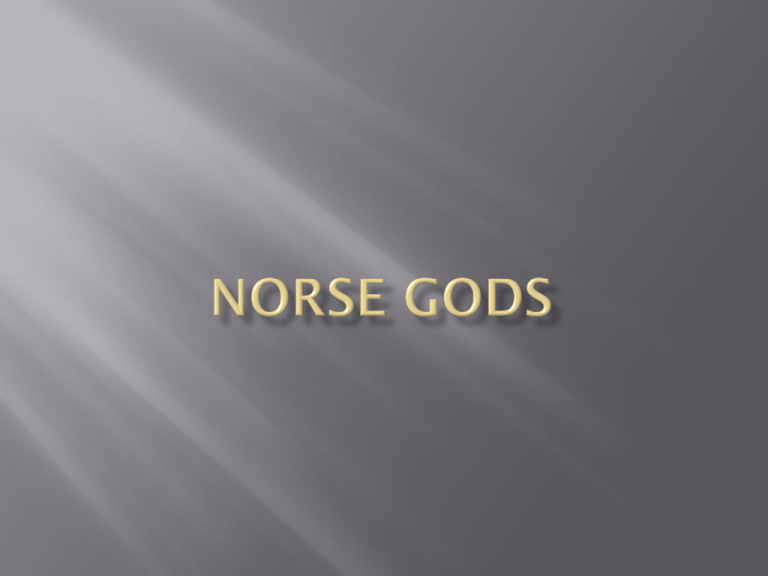
Thor was the thunder god, the main enemy of the giants, and the son of Odin. The common man called upon Thor rather than his father Odin. The English fifth day of the week is named Thursday after Thor. One-eyed and the wisest of the Aesir gods, Odin displaced Thor as their leader. Odin is also called Woden. Odin is also the god of the dead. Frigg (or Frigga) is Odin’s wife and the greatest goddess of the Aesir. She is the goddess of marriage, motherhood, and managing the household. Goddess of prophecy, but doesn’t tell. Thor is her brother or a stepson. Friday is named after her (or Freyja). Heimdall is the handsome gold-toothed guardian of Bifrost, the rainbow bridge leading to Asgard, the home of the Gods. It is Heimdall who is to sound the signal horn to the Aesir that Ragnarok, the great destruction, is beginning. In Norse mythology, Loke was a giant. Loke is best know as a trickster god, possibly responsible for Balder’s death. He was the adopted brother of Odin, and was bound to a rock until Ragnarok. In some stories, he’s mischievous; in others, malevolent. She is the Norse god of love and fertility, war, and wealth. She was taken by the Aesir, perhaps as a hostage. She is the foremost goddess of the Vanir but lives with the Aesir. Frey was a Norse god of weather and fertility. He is the brother of Freyja. The boar is his sacred symbol, which is both associated with war and with fertility. The Norse god Balder is the son of Odin and Frigg. He is described as being the greatest of all. Everyone loves him. He is so beautiful and fair that he glows and he was considered the god of light. His death, orchestrated by Loke, caused the beginning of Ragnarok. ancienthistory.about.com/od/norsemyth/a/aa 081799Norse.htm simple.wikipedia.com
